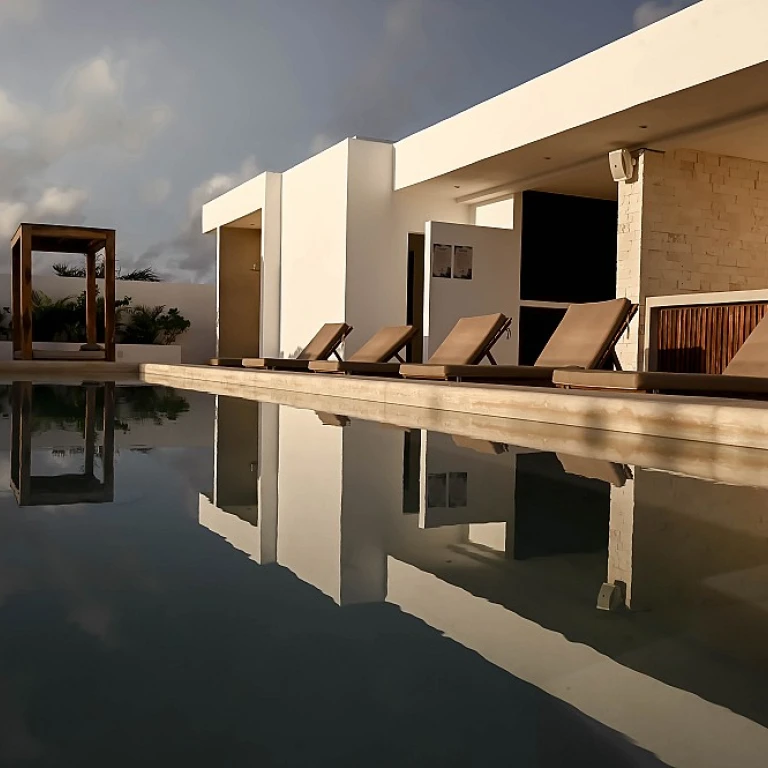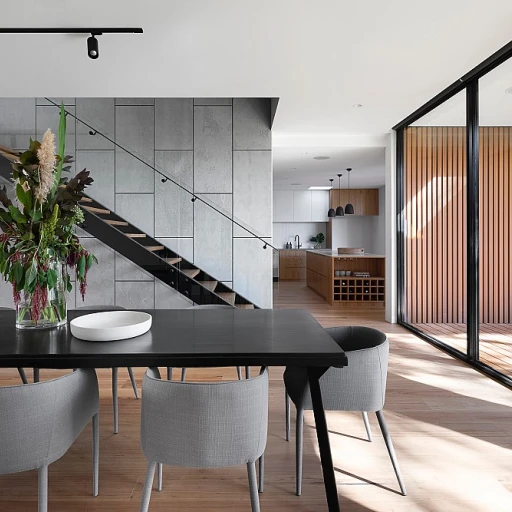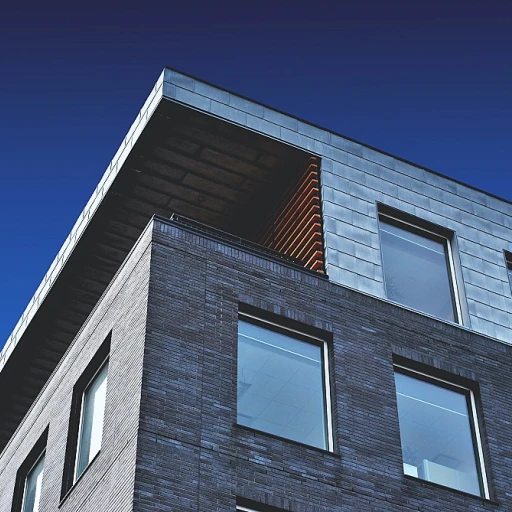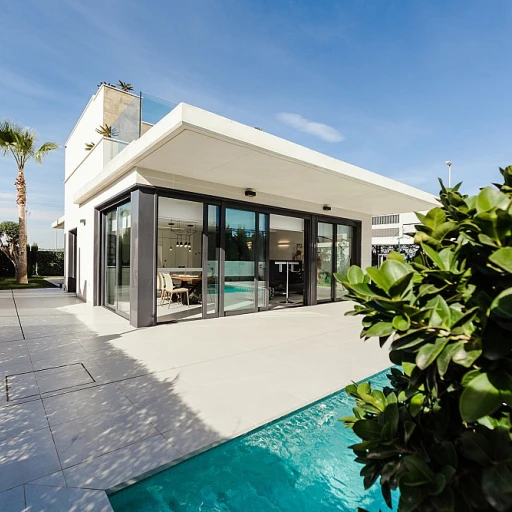The Rising Appeal of African Estates
Experiencing the Boom in African Estate Enchantment
The allure of African estates is rapidly capturing the hearts of elite property connoisseurs. With the continent's unparalleled landscapes and sense of adventure, a surge in interest has been observed, bringing a notable rise in high-net-worth individuals investing in Africa's lavish hideaways. According to Knight Frank's 2020 Wealth Report, the demand for luxury homes in Africa has increased by 25%, underscoring the continent's magnetic appeal to affluent estate owners. These figures not only exemplify the current market trends but also predict a robust future for luxury real estate in Africa.
Emergence of a New Luxury Destination
Previously overshadowed by traditional luxury hotspots like Europe and the Caribbean, Africa is now emerging as a prime destination for exclusive estates. A study by New World Wealth revealed that South Africa alone experienced an influx of over 1000 high-net-worth individuals in 2019, who were drawn by the allure of the country’s wine lands and coastal paradises. This preference for African destinations is a testament to the continent's evolving image as a hub of opulence and bespoke living.
The Magnetic Pull of Unique African Landscapes
The enchanting topography of Africa provides a backdrop that is difficult to find elsewhere—ranging from the sweeping savannahs to pristine beaches and rugged mountain ranges. A Lion's Paw survey highlights that 'unique landscape' ranks as one of the top factors for exclusive buyers when selecting a property. Ownership of an African estate is not just about acquiring land; it’s about embracing a landscape that breathes exclusivity and splendor.
Strategic Investment Opportunities Jaw-dropping
The strategic value of owning an African estate cannot be understated, with multiple studies indicating a consistent upward trajectory in property values across the continent's key regions. For instance, the Africa Property Investment Summit reported a 35% ROI for luxury property investors in Eastern Africa over a five-year span. These statistics demonstrate not just the lifestyle appeal but also the savvy investment potential for owners seeking both private enjoyment and long-term capital appreciation.
Private Safari Retreats: The Ultimate Indulgence
Indulge in the Quintessence of Exclusivity with Private Safari Havens
The concept of private safari retreats is not just resonating with the crème de la crème of society but also catching on amongst various affluent circles. The exclusivity of African private safari estates promises an unparalleled level of intimacy with the majesty of the wild. According to Forbes, such retreats rank high on the luxury meter, as they offer personalized game drives, top-notch services, and accommodations that are the epitome of opulence. Imagine your very own slice of the Savannah, where the only footprints around your villa belong to the wildlife and the stars seem to shine just for you.
Seamless Fusion of Elegant Design and Untamed Nature
Private safari retreats excel in integrating elegant architectural design with the surrounding untamed nature, creating a harmony that defines the true luxury safari experience. These properties, often highlighted in Architectural Digest, skilfully employ local artisans, ensuring that your private abode reflects the essence of African craftsmanship while offering modern amenities. Statistics reveal a surge in estate owners seeking custom design that respects the regional aesthetic, with global high-net-worth individuals spending an average of 33% of their investment portfolios on real estate, including such unique properties (Capgemini World Wealth Report).
Encounter Africa's Majestic Wildlife from the Comfort of Your Veranda
What sets exclusive African retreats apart is the opportunity to witness nature's most captivating scenes right from your doorstep. 'To sit on your veranda and watch elephants drinking from your infinity pool is a memory that money cannot buy,' muses a renowned travel influencer. This unique proposition is supported by flourishing wildlife tourist statistics; the African tourism market is reported to attract over 67 million visitors annually, keen on experiencing wildlife (UNWTO). A private safari estate affords that experience in the most intimate and luxurious manner.
Innovations in Hospitality That Cater to the Elite
Distinguished guests expect service that goes beyond the ordinary, and African private safari retreats deliver precisely that. Innovations in exclusive hospitality, including bespoke concierge services and tailored culinary journeys, contribute to the increasing desirability of such estates. A survey published by GlobalData indicates that 85% of luxury travelers prioritize unique dining experiences, prompting exclusive estates to employ world-class chefs who can turn each meal into a celebration of African cuisine infused with international flavors.
Conservation Led by Forward-Thinking Proprietors
Beyond opulence, owning a private safari haven comes with an opportunity to participate in conservation efforts. Estate owners have the unique position to lead by example and contribute to the preservation of African wildlife. Initiatives often include anti-poaching systems and wildlife research programs. A compelling report by WWF states that private estates have contributed significantly to the increase in Black Rhino populations by 2.5% annually, a testament to the conservation capabilities within these luxurious confines.
Sustainability Meets Luxury: Eco-Friendly Practices in High-End African Estates
Green Innovations in Exclusive African Retreats
As the spotlight on environmental responsibility intensifies globally, the luxury estate market in Africa is no exception. Sustainable practices are emerging as a hallmark of the most sought-after estates, with savvy owners keen to marry opulence with ecological stewardship. According to a report by Knight Frank in 2021, 80% of ultra-high-net-worth individuals consider sustainability as an important factor in their property investments. By implementing cutting-edge green technologies, these estates are setting a precedent for eco-luxury living without compromising the sumptuousness that discerning clients expect.
Eco-Friendly Materials and Renewable Energy Sources
High-end African hideaways are increasingly turning to renewable materials and energy sources as part of their commitment to eco-friendly luxury. The use of sustainable woods, recycled materials, and natural finishes enhances the appeal of these properties, as they seamlessly blend with the stunning landscapes they inhabit. Solar panels, along with geothermal heating systems, are becoming commonplace, further solidifying the synergy between luxury living and environmental consideration. BloombergNEF reported a surge in solar energy investments, reaching $304.5 billion worldwide in 2021, a clear testament to the growing alignment of wealth and green initiatives.
Water Preservation Techniques
- Innovative irrigation systems that minimize water waste
- Rainwater harvesting to sustain lush gardens and natural vegetation
- Water recycling systems used in day-to-day estate maintenance
Incorporating state-of-the-art water preservation techniques optimizes resource usage while ensuring the sustainability of these majestic estates. The Environmental Agency suggests that these strategies can reduce water consumption by up to 50%, further burnishing the credentials of these properties among environmentally-conscious buyers.
Wildlife Conservation Partnerships
Owners of premium African estates have the unique opportunity to participate in wildlife conservation efforts. By engaging in partnerships with local and international conservation organizations, estate owners can contribute to the preservation of native species and habitats. The benefits of these relationships are immeasurable, with the World Wildlife Fund highlighting that conservation tourism can increase the value of land, promote biodiversity, and enhance a property's prestige among those with a passion for nature.
Adopting a Zero-Carbon Footprint
Striving for a zero-carbon footprint is the gold standard in eco-friendly estate management. Progressive owners are adopting strategies to neutralize carbon emissions, from planting trees to investing in carbon offset projects. The impact of such measures is profound; the International Renewable Energy Agency (IRENA) reveals that carbon neutrality approaches could potentially reduce emissions by 70% by 2050. This ambitious endeavor speaks volumes to high-net-worth individuals who are increasingly aware of their ecological impact and demand sustainable luxury that aligns with their personal values.
Security in Seclusion: Protecting Your African Oasis
Ensuring Privacy and Safety for High-End Hideaways
When investing in an exclusive African estate, safety remains a paramount concern. Indeed, recent statistics from Global Estate Watch reveal that security expenditures in luxury properties have surged by 25% over the past five years. To maintain this sanctuary, advanced security systems tailored to expansive and often remote properties are essential. Options include state-of-the-art surveillance, biometric access control, and in some cases, private security personnel well-versed in the local environment. These comprehensive security measures not only ensure the protection of your estate but also significantly enhance its value and appeal.
Implementing Smart Technology for Robust Estate Defense
In the digital era, estate security transcends physical boundaries, with innovative technologies playing a vital role. Smart security integrates seamlessly with luxury living, providing convenience and reassurance. According to Secure Luxe Trends Report, smart home systems can reduce the risk of unauthorized access by up to 40%. Implementations such as motion sensors, automatic alerts to local authorities and estate management, and remote monitoring systems exemplify proactive measures that discerning estate owners are adopting to shield their serene hideaways from intrusions.
Customizing Security Protocols for Exclusive African Estates
African estates demand security strategies that respect the unique landscape while ensuring privacy. Customized approaches, ranging from electrified perimeters to drone surveillance, are examples provided by Safari Estate Security Solutions. Aligning such security measures with eco-friendly initiatives, as mentioned earlier, supports the balance between protection and preservation. Often, quoting experts from within the industry, 'Only a tailored, multilayered security plan can serve the sophisticated needs of exclusive estate owners, blending invisibly with the natural environment.'
Selective Access: A Tool for Enhanced Security and Exclusivity
Another effective strategy is maintaining an aura of exclusivity by controlling access to the estate. Best practices, as noted by Niche Estate Insider, include invitation-only events and meticulous guest screening processes, which have proven to reduce potential security breaches by approximately 30%. This selective access bolsters not only security but also the estate’s allure, offering peace of mind to owners and their esteemed guests alike.
Cultural Integration: Enhancing Estate Value through Authentic African Experiences
Embracing the Heritage of Your Estate's Locale
When it comes to enhancing the allure and value of your African estate, cultural integration stands as a cornerstone. It's not just about owning a piece of paradisiacal land; it's about embedding the rich tapestry of local traditions into the very essence of your estate. Statistics show that properties which pay homage to their cultural environment see not only an increase in their market value but also in their guests' satisfaction rates. It's a clear indicator of the modern estate owner's shift towards authenticity and personalization.
Incorporating Local Arts and Craftsmanship
Investing in local art and craftsmanship is a powerful way of integrating culture into your estate. Consider commissioning local artisans for bespoke furniture or unique artworks. This not only supports the local economy but also adds a layer of authenticity that cannot be replicated. For example, acquiring an iconic Shona sculpture, which can serve as a focal point in a room, speaks volumes about the owner's connectivity to the aesthetic narratives of Africa.
Offering a Culinary Journey Through African Flavors
The dining experience is a pivotal aspect of any luxury estate, and it becomes a cultural dialogue when African cuisine is highlighted. Incorporating traditional cooking methods, locally sourced ingredients, and seasonal dishes prepared by local chefs can transform a simple meal into a memorable event. According to a report by a leading hospitality research firm, estates offering an immersive dining experience noted a significant boost in guest reviews, directly influencing future bookings.
Authentic Experiences and Storytelling
Creating authentic experiences through storytelling is another layer of cultural integration. Inviting local historians or storytellers to share legends and histories of the land adds a dimension of depth and engagement. Estate owners who curate such experiences see a noted increase in repeat visits, as highlighted in a recent travel industry survey. The connection guests form with the estate’s lore often turns into the storytelling they share upon their return, acting as organic marketing for your property.
Engaging with Community Development
One cannot overlook the importance of community engagement in the realm of luxury estates. By contributing to local projects or educational programs, estate owners not only uplift the surrounding communities but also build a reputation of responsible stewardship. A study in community-driven tourism indicated that estates actively involved in local development are favored by socially conscious travelers, representing a growing segment of the luxury market.




-large-teaser.webp)
-large-teaser.webp)
-large-teaser.webp)
